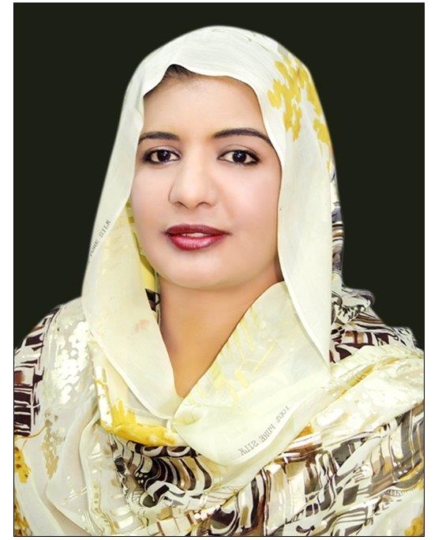Spotlight on Muna Abdelfattah
Questions and Answers with Muna Abdelfattah

Mainstream media often misrepresents the complicated and dynamic realities of religion in the Middle East. Integral and comprehensive coverage requires long-term, embedded service. That is precisely the kind of work that Muna Abdelfattah has been doing for almost 15 years. Despite the constant threat of silencing from opponents of journalistic freedom, she continues to bring us her invaluable perspective both as a writer at Alaraby Aljadeed newspaper in London and at Makkah newspaper in Saudi Arabia, and as a researcher in political science at the University of Khartoum in Sudan.
Muna Abdelfattah has been awarded the International Golden Phoenix for distinguished women in 2014, and the ICFJ Anywhere Award for her story on sexual harassment in workplaces in Arab countries in 2010.
Q:
To begin, where are you based, and what is your primary focus of reporting as a religion journalist?
A:
I am a Sudanese journalist living in Saudi Arabia, and I primarily focus on political Islam-a job which became very difficult in my home country after the 1989 Sudanese Islamic movement and military coup.
The religious oppression and racism suffered by the Southern Sudanese living in North Sudan led to the choice of Southern secession in 2011. The military junta forcefully imposed its fundamental political views on the entire nation through a nominally theocratic dictatorship. They effectively marginalized their political opponents by declaring them enemies of Islam. People quickly recognized their manipulation of Islam as a tool for gaining clout and for pursuing their singular goals of power and wealth-the general hallmarks of corruption.
Clearly the war and its complicated aftermath cannot be covered without addressing both political and religious points of views, which led to persecution and torture of the Sudanese journalists brave enough to do so. I experienced this firsthand, having been shot during a demonstration against the government in which I participated.
Now, living in Saudi Arabia, I focus on the attacks carried out by ISIS against Shia Mosques in Saudi Arabia. I am most interested in analyzing the related religious issues of both Saudi Arabia and Sudan.
Q:
What are the most prominent issues of religion in your region that you are covering?
A:
Religious extremism is the most prominent and complicated issue currently facing the Middle East, as ISIS is spreading rapidly in many countries, especially Iraq and Syria. It is an old struggle that constantly manifests itself in new forms of conflict between all political factions in the area: Sunni, Shia, and Baath, Naserrists, communists, and other ideological groups.
ISIS’s approach is very simple: kill or conquer every group that does not share their beliefs.
For decades, there have been calls to form a national state that could protect against such dangerous ideology. Unfortunately, the dialogue remained confined to small circles of educated elites who were aware of the dangerous situation. Those elites live in high towers, leaving the majority of the people to suffer under the crisis of the region.
Religious extremists strategically target people who are far removed from media and sources of critical thinking, filling their hearts and minds with hatred and rage. Particularly vulnerable populations include young people, poor people, and the unemployed.
Q:
How did you become interested in covering religion?
A:
I became interested in covering religious issues because I believe that religions in general call for peace among societies, which directly contradicts the religious extremists who claim to be acting in their belief system’s name. I have participated in several training courses on covering international religious issues organized by the International Center for Journalists
Q:
What do you see as the main changes that need to take place in regards to religious coverage for society to have a better understanding of religion’s role in their lives?
A:
Acknowledging the rights of others means respecting their points of views, especially when these views differ from our own. Disagreement is natural, reflecting the diverse patterns of life and morality found on the planet.
Dialogue should be encouraged and facilitated between persons of different ideologies. Increased mutual understanding would bridge the gap for everyday, ordinary people who are most likely to be caught in the fray when political differences arise.
Q:
What challenges have you faced as a religion reporter?
A:
As a female journalist covering religious issues, I face many challenges – each one of them an obstacle in the path of seeking truth.
Not only does conservative Arab society restrict my movement, but it also greatly limits my ability to speak with the leaders of religious communities, since they are men.
Although in Sudan I face fewer gender-based limitations, the general journalistic censorship there makes it even more difficult to write an article without confronting the authorities. Nonetheless, I must carry on doing my job.
Q:
What could IARJ do to support you in your work?
A:
I have been a member of IARJ since 2012, and I would like to participate further in international activities, conferences and seminars to exchange experiences and opinions. Such participation will help me to do my job properly as a journalist working in the flammable and complicated region of the Middle East.
Q:
What advice do you have for reporters interested in covering religion?
A:
My advice for journalists interested in religion is to be both patient and resilient, and to participate in as many training courses as possible in order to develop necessary journalistic tools. Most importantly, have refined knowledge of the field and respect for all religions and viewpoints.
